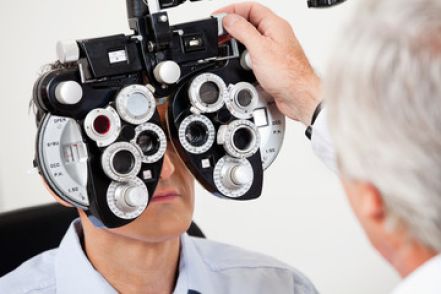Use an Ophthalmologist to Care for Your Eyes

When it comes to your health, preventive measures are important. It is also true for eye health but people tend to ignore this simple truth. Most people don’t really think about their eye health until they have a problem with their vision or experience eye discomfort. But you can prevent and tackle eye problems immediately with regular visits to your ophthalmologist.
Get the Expert Help
An ophthalmologist can provide your specialized help for all vision-related problems as well as treat all eye-related diseases.
There are different types of eye care specialists such as optometrists, opticians, and of course ophthalmologists. Optometrists and opticians are not medical doctors only ophthalmologists are and they take care of all eye problems. Optometrists are qualified to only diagnose vision problems and prescribe some medicines. Opticians are only trained to design and fit prescription glasses and contact lenses.
There are many reasons to visit your ophthalmologist regularly even if you don’t have any eye problem.
Visit your eye doctor for preventive care –
You can visit your ophthalmologist for yearly eye exams especially after the age of 40. Vision can change as you age. Eye problems are also common as one gets older. It is better to find and treat eye problems before they become severe. But don’t just visit any ophthalmologist. It is important to find the best eye doctor in your area for the best quality of care for your precious vision.
For instance, if you need to find an ophthalmologist in Colorado Springs; ask your primary care physician for references. You can also conduct an online search for local eye doctors and visit their websites. Then select a doctor who is board-certified, experienced, and one who specializes in a range of eye-related services.
Visit your eye doctor for specialized care –
If you notice any trouble with your vision or have pain in the eyes; schedule a visit with your ophthalmologist at the earliest.
Red eyes or pain can indicate an infection, which your doctor will need to examine without delay. Distorted or double vision can indicate a severe issue with the eyes that can be determined only upon an examination.
Pain, vision problems, or any other abnormalities with eyes can be due to infections, trauma, or a disease. Cataracts, glaucoma, conjunctivitis, retinal detachment, and bulging eyes are serious eye problems that need immediate attention. Any delay in care can aggravate the problem.
Persistent dry eyes, twitching, itchiness can be very uncomfortable to bear on a daily basis. You will need to see a doctor about these problems. Eyelid cysts, light sensitivity, drooping eyelids, tunnel vision, and macular degeneration are other eye problems that require swift medical attention.
Again, it is important to have a relationship with an eye doctor in your area for specialized care as well as preventive care. So, for instance, if you need an eye exam in Colorado Springs or nearby areas; look for an experienced doctor who provides a range of services.
Other reasons to schedule regular visits to your eye doctor –
If you have diabetes or hypertension, it can affect your vision. To prevent any complications, you need to schedule regular visits to your ophthalmologist. When not checked or treated in time, diabetes complications can cause partial or complete vision loss.
If you need surgery for vision correction such as LASIK or PRK; corneal transplants, or glaucoma management; then your ophthalmologist can perform a thorough eye exam and plan your treatment or surgery. If you or your child has an injury that causes trauma to the eyes; only an ophthalmologist can perform a comprehensive exam to prevent any complications or provide treatment for complete healing.
When you have a family or regular ophthalmologist, you don’t need to worry about your eyes. Your regular eye doctor is aware of your medical history and the state of your eyes. Your doctor can identify and correct any eye problem before it becomes serious.
Important Considerations
Always visit an ophthalmologist who is qualified, experienced, and offers comprehensive services. Choose a doctor who is responsive to your needs and provides you with information that can improve your eye health.




